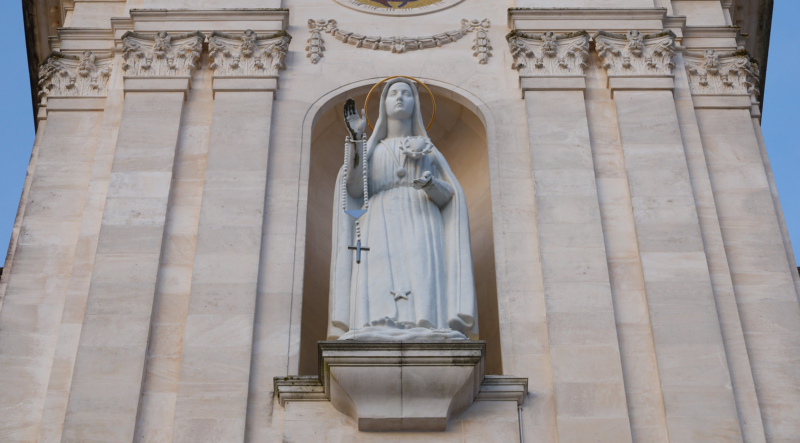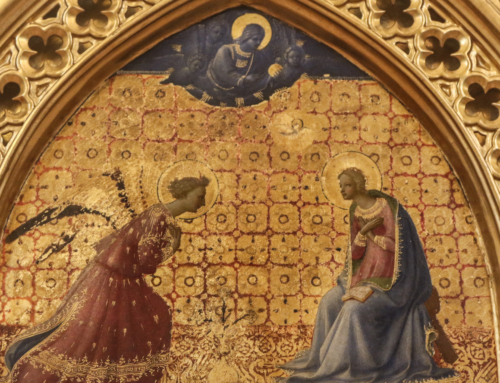On May 13, 1917, a bright and fair day in the Cova da Iria, our Blessed Mother appeared before three shepherd children, all family, imploring them to say the Rosary and make sacrifices for sinners. This is, in a nutshell, the story of Fatima. Two of the children, Francisco and Jacinta Marto, are counted among the saints of heaven, while the cause of the eldest, Lúcia, carries on today.
It was the custom of the shepherd children to pasture their sheep in the nearby hills. Their parents instructed them to make sure they prayed the rosary after lunch. Sister Lúcia and her cousins thought this was tedious, so they found another way.
“[We] simply passed the beads through our fingers, saying nothing but ‘Hail Mary, Hail Mary, Hail Mary…’ At the end of each mystery, we paused awhile, then simply said ‘Our Father’ and so, in the twinkling of an eye, as they say, we had our Rosary finished!” (Fatima in Lucia’s Own Words, §I.7).
In Our Lady’s first apparition, when she made herself known to the children, she scolded them for saying their rosaries in shorthand. They had to say the whole prayer! This episode illustrates a guiding principle in the lives of these children that would develop over the course of the Blessed Mother’s apparitions—follow the will of God.
For the children of Fatima, a first step in learning to follow God’s will was saying the whole Our Father—including its third petition, Thy will be done on earth as it is in heaven (Matt 6:10). Saint Thomas advises that, in praying this, we ask God for his will to be done “in the same way as one who is sick desires something from the physician” (Exposition on the Lord’s Prayer, 3). When we pray the Our Father, we ask for God’s help in following his will, recognizing our weaknesses and asking the divine physician for the grace to heal them.
Saint Augustine posits that to wish for God’s will to be done on earth is also to “wish well for . . . our enemies, that they, too, may believe and become Christians” (On the Lord’s Prayer, 5). God instructs us to love our neighbor, which includes wishing them well (ST II-II q. 27 a. 2). What goods do we wish for our neighbors? Praying the Our Father stretches our hearts to wish the highest good for our neighbor, the same good that God wills for them: their salvation.
Reflecting on God’s desire for our healing and our neighbor’s salvation, we recognize that his will is also his love (ST I q. 20 a. 1). When we say, “thy will be done,” we implore that the love of God be made manifest on earth as in heaven. And what a relief! To rest in God’s love, knowing that it is through love that his will is completed on earth grants so much hope to the believer! As Sister Lúcia told a local bishop, “It is so good to live totally dependent on the Will of God.” When we abandon ourselves to the will of God, we entrust ourselves and those we know into the care of God’s unfathomable love.
Let us, then, ask the intercession of these little saints and of our Blessed Mother, that we too might advance God’s will and, in the words of Sr. Lúcia, “vivify in souls the spirit of faith, confidence, and love.” Our Lady of Fatima, pray for us.
✠
Image: Fr. Thomas McGlynn, O.P., Our Lady of Fatima. Photo by Fr. Lawrence Lew, O.P. (used with permission)







